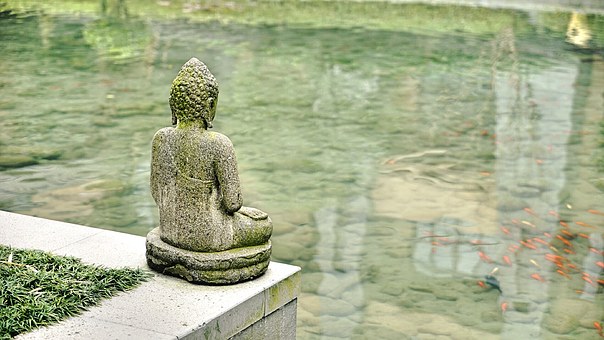Polygonum bistorta
Bistort – a hardy perennial with slender stems, growing up to 30 inches tall. Each stem is topped by a dense cylindrical cluster of tiny white or pinkish flowers (May-August). Lower down the stem grow long bluish-green leaves that are lance shaped; higher up, the leaves become smaller. The rhizome of bistort (underground stem) is dark brown to
black, thick, knobby, and twisted into an S or double-S shape.
Tag: up
Magickal Cleansing
So Why Do we need to Cleanse Before doing Ritual and Magickal Work?
Well, as you are about to honour the Goddess and the God, firstly you want to be clean out of respect for them! Secondly, by taking a Ritual bath it signals to your mind and body that you are preparing to do Ritual and Magick, which starts to get you into the right frame of mind to perform anything that you will be doing within the Circle! Thirdly, you need to ensure that your ‘space’ is clean and free from negativity (all the pent up emotion and negative energy that has accumulated over the time since it was last spiritually cleansed builds up, and if you haven’t used the space before, who’s to say exactly what has happened there in the past!), to ensure that you have only good and positive energies about when you perform Rituals.
Arinna (sun goddess)
Solar deity. Hittite and Hurrian. May have taken androgynous form, but also identified as the consort of the weather god TESˇUB. Probably the head of the Hittite state pantheon. There is little detail because the religious center of Arinna is known only from texts. The sun goddess was also perceived to be a paramount chthonic or earth goddess.
10 Quick Debt-Busting Tips
By: Colin Mc Caig
Are you really frustrated?
Does it sometimes seem like the dollars are slipping through your fingers while the bills just seem to keep mounting up?
It’s a familiar feeling for many of us nowadays.
Sometimes, though, like most things in life, taking a step back from it all and starting to get some simple things right can make a huge difference on the big picture.
If your debts have been getting you down recently, here are 10 great ways to start slashing them today:
The Fool by Charly
Coming to Birth thru the material
Born to the planet thru meat
Open wide gates of the female
I am born cosmic joker.
Pan-God of the universe supreme
Promise of invention reassured
As I, Sun, of the newborn
Come alive from the dark.
King of the unseen, I declare,
Conquerer of the unknown, I do say,
Traveller of the cosmic voyage
I come to be born anew.
I, at the beginning of the journey,
Come full force like a spring
Metal needle standing up
Like a prick of steel
Male protrusion from the universe
Womb of all existence
I come forth, declaring
I AM
Seal of eternity on my lips
I give forth all
Inside to the outside
Macro to the micro
Seal of power
Washed upon the shores
Cosmic universe
Lapping at my feet
Article by Charly
Metamorphosis Magic
by Charles La Shure
Among the deities and semi-deities of ancient Korea, the chosen method of battle was magic. Unlike Western magic, which often involves incantations cast to harm the enemy, metamorphosis magic was more indirect. Rather than directly attempting to harm the enemy, one would test one’s strength against an opponent by changing into various animals. The transformation would continue until one party gave up. In all instances the weaker party transforms first and is then bested by the stronger party who transforms into a stronger animal, most often the weaker animal’s traditional hunter or nemesis. The contest ends without violence, and is really a test of strength that is a substitute for direct battle. For examples of metamorphosis magic, see the stories of Habaek and T’alhae.
Untangling Spell
by: Cerridwen Iris Shea
Get nine ribbons, cords, or lengths of yarn, each in a different color. Place them on a cloth and mix them up. Take a deep breath and say:
“Lachesis, Clotho, Atropos, Fates Three,
Help me to unravel this mystery.
As I organize these strands in a row,
May my life make sense to know.”
Air Meditation
(taken from the WICCA echo on Sun 24 Jan 93 22:17)
It is dawn. I find myself in a forest filled with Aspen trees.
I raise my eyes and look for the sky, but the boughs looming overhead hide it from my view. As I look up, feel the cool breeze of spring brush my face, and hear the sound of the rustling leaves. Blowing, laughing from the east, Eurus brings thoughts of renewal and life. I follow the wind further into the soft shadows of the forest, inhaling deeply the strong scent of the trees. I smell, too, the wafting hints of fragrant incense.
Patience and its Perfection (Khanti-parami)
By Bhikkhu Khantipalo
Patience is an excellent quality much praised in Buddhist scriptures. It can be developed easily only if restlessness and hatred have already been subdued in the mind, as is done by meditation practice. Impermanence, which has the tendency to make one rush around and thus miss many good chances, results from the inability to sit still and let things sort themselves out — which sometimes they may do without one’s meddling. The patient man has many a fruit fall into his lap which the go-getter misses. One of them is a quiet mind, for impatience churns the mind up and brings with it the familiar anxiety-diseases of the modern business world. Patience quietly endures — it is this quality which makes it so valuable in mental training and particularly in meditation. It is no good expecting instant enlightenment after five minutes practice. Coffee may be instant, but meditation is not, and only harm will come of trying to hurry it up. For ages the rubbish has accumulated, an enormous pile of mental refuse, and so when one comes along at first with a very tiny teaspoon and starts removing it, how fast can one expect it to disappear? Patience is the answer, and determined energy to go with it. The patient meditator really gets results of lasting value; the seeker after “quick methods” or “sudden enlightenment” is doomed by his own attitude to long disappointment.
Continue reading “Patience and its Perfection (Khanti-parami)”
Energy and its Perfection (Viriya-parami)
By Bhikkhu Khantipalo
Just as Enlightenment is inconceivable unless a person has patience, so it is not attainable without effort being made. The Dhamma never encourages the doctrine of fatalism, and true Buddhists never think of events as being rigidly predetermined. Such fatalism is combated by mindfulness and by energy itself. This perfection is the counterpart of the previous one, and balanced by practice, they ensure that the sincere Buddhist neither passively accepts what he should combat nor rushes around to the disturbance of himself and others when he should have patience. By way of warning it may be mentioned here that in the Buddhist world can be found a number of “methods” which seem to promise the riches of Dhamma all in no time. One hears such remarks as, “What’s the use of books and study?” Or even, “The development of calm is a waste of time! One should only develop insight.” Such lop-sided approaches do not reflect the wisdom of Lord Buddha, who taught time and again the necessity of a balanced development of mind. Books and their study are useful to some people who wish to gain a good background of what Lord Buddha really said, before taking up more intensive practice. As for the other assertion, no real insight (only delusive ideas) will arise to the person whose mind has no experience of calm. Such views as these, which are usually based on some peculiar experience of those “teachers” who originate them, are apt to mislead many, since the craving for quick results coupled with the dislike of the necessary hard work, are easily stirred up. There must be patience to accept that the conditions required for success of meditation (as outlined here) have to be fulfilled, and the only result if failing to do so, is straying off the Way. The meditator applies himself steadily to whatever task he has in hand and, coming to the end of it, does not feel tired at all but straightaway takes up a new objective.
Continue reading “Energy and its Perfection (Viriya-parami)”










